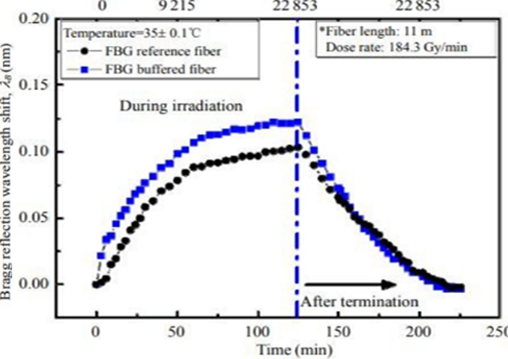Impact of gamma irradiation on the properties of fiber Bragg grating: A review
Keywords:
Fiber Bragg Grating, Gamma Irradiation, Monitoring, Optical Sensor, Reflection WavelengthAbstract
Fiber Bragg grating (FBG) is an optical sensor used to detect environmental changes, such as temperature, pressure, and radiation. This study analyzes the impact of gamma-ray irradiation on the shift of Bragg reflection wavelength in FBG optical fibers at various temperatures. The results show that increasing temperature from 18°C to 40°C before gamma irradiation causes a Bragg wavelength shift of about 5.48 pm/°C. Gamma-ray irradiation with a cumulative dose of 22.85 kGy for 124 min at 35°C resulted in a radiation dose-dependent Bragg wavelength shift, with a value of about 5.25 × 10-3 pm/Gy. After the irradiation was stopped, the Bragg reflection wavelengths on the FBG fibers showed a recovery of up to 84.4% for the buffer fiber and 36.2% for the reference fiber. These findings provide important insights into the behavior of FBG sensors in an environment of gamma radiation and temperature fluctuations, making them potential for applications in extreme condition monitoring.





